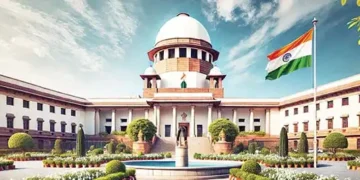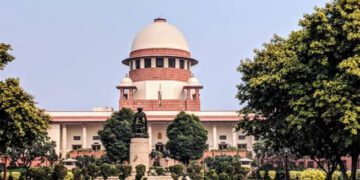 THE Punjab and Haryana High Court’s ruling that declared the Haryana State Employment of Local Candidates Act, 2020, unconstitutional has sparked an intense debate on the delicate equilibrium between state autonomy and constitutional rights. This Act mandated a 75 per cent reservation for local candidates in private sector jobs with salaries below INR 50,000 per month but later revised the upper limit to INR 30,000 on receiving opposition from industrialists. The 75 per cent domicile quota in private sector employment was an election promise made in 2019 Assembly elections by Jannayak Janata Party (JJP) chief and now Deputy Chief Minister Dushyant Chautala. This article delves into the High Court’s rationale, compares similar laws across Indian states, suggests policy alternatives, and references key legal precedents, aiming to provide a comprehensive analysis for readers of Blitz India.
THE Punjab and Haryana High Court’s ruling that declared the Haryana State Employment of Local Candidates Act, 2020, unconstitutional has sparked an intense debate on the delicate equilibrium between state autonomy and constitutional rights. This Act mandated a 75 per cent reservation for local candidates in private sector jobs with salaries below INR 50,000 per month but later revised the upper limit to INR 30,000 on receiving opposition from industrialists. The 75 per cent domicile quota in private sector employment was an election promise made in 2019 Assembly elections by Jannayak Janata Party (JJP) chief and now Deputy Chief Minister Dushyant Chautala. This article delves into the High Court’s rationale, compares similar laws across Indian states, suggests policy alternatives, and references key legal precedents, aiming to provide a comprehensive analysis for readers of Blitz India.
High Court’s rationale The decision of the High Court rested heavily on the interpretation of the Indian Constitution’s fundamental rights, particularly Article 14, which guarantees equality before the law, and Article 19(1) (g), which provides the freedom to practice any profession. The court held that the Act’s domicile-based reservation for private jobs impinged on these rights, thereby discriminating against nonlocal candidates and employers. This interpretation reflects a judicial effort to safeguard constitutional values against potentially overreaching state legislations.
Legal precedents
The Indian judiciary’s stance on reservation and employment policies has evolved over time. Landmark cases like Indra Sawhney v. Union of India have significantly influenced the understanding of reservations, particularly in public employment.
However, extending these principles to the private sector remains legally complex and uncharted. The ruling by the Punjab and Haryana High Court is a testament to the judiciary’s role in upholding constitutional integrity against potentially intrusive state laws.
Comparative study
The concept of domicile-based employment reservation is not unique to Haryana. States like Andhra Pradesh, Karnataka, and Maharashtra have introduced similar policies. Andhra Pradesh, for example, passed a law mandating 75 per cent reservation for locals in private jobs. These initiatives, while well-intentioned to boost local employment, have faced criticism and legal challenges, pointing to a potential conflict with the constitutional framework. This comparative analysis underlines the complexities and legal challenges that arise when states attempt to regulate employment in the private sector.
Economic implications
The Act also raised significant economic concerns, particularly in the private sector. Employers argued that such reservations could lead to a mismatch between job requirements and candidate skills, potentially harming business efficiency and competitiveness. This highlights a critical aspect of such policies – the need to balance socio-economic objectives with the practical realities of the business environment.
Policy alternatives
To balance the objective of promoting local employment and adhering to constitutional principles, states could explore alternative strategies.
Incentive-based approaches, such as tax benefits for companies employing locals, combined with substantial investments in education and skill development, could foster a competent local workforce. This approach would promote employment without infringing on constitutional rights, thereby ensuring a more equitable and legally sound method of boosting local employment.
State autonomy
The High Court’s decision underscores a fundamental tension in Indian federalism: the extent of state autonomy in legislating on matters that potentially conflict with constitutional rights.
While states have the right to address local concerns, this right is not absolute and must align with the broader constitutional framework. This case serves as a reminder of the need for careful legislative drafting, ensuring state laws do not infringe upon fundamental rights and freedoms.
Conclusion
The Punjab and Haryana High Court’s ruling on the Haryana State Employment of Local Candidates Act, 2020, offers a critical insight into the intersection of state legislative powers and constitutional rights. It serves as a precedent for other states and underscores the importance of formulating policies that are not only legally sound but also economically viable and socially equitable. As India continues to navigate its complex socio-economic landscape, such legal analyses are vital for informed and effective policymaking.

































